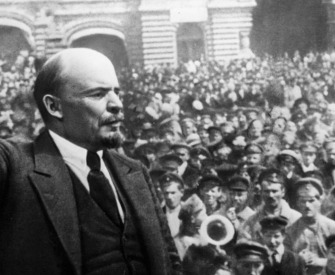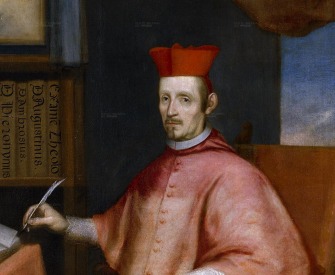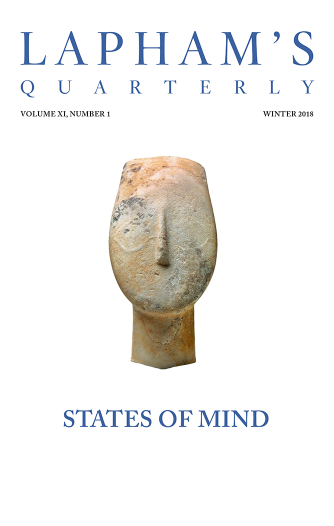Windows split the city’s great hell
into tiny hells—vamps with lamps.
The cars, red devils, exploded their yells
right in your ear, rearing on their rumps.
And there, under the signboard with herrings from Kerch,
an old man, knocked down, stooping to search
for his specs, sobbed aloud when a tram with a lurch
whipped out its eyeballs in the twilight splurge.
In the gaps between skyscrapers, full of blazing ore,
where the steel of trains came clattering by,
an aeroplane fell with a final roar
into the fluid oozing from the sun’s hurt eye.
Only then, crumpling the blanket of lights,
Night loved itself out, lewd and drunk,
and beyond the street-suns, the sorriest of sights,
sank the flabby moon, unwanted old junk.
“Great Big Hell of a City.” As a teenager in Moscow, Mayakovsky joined the Bolshevik faction of the Russian Social-Democratic Workers’ Party and was arrested repeatedly for issuing revolutionary proclamations; he wrote his first poems in solitary confinement. In 1911 he became interested in futurism. The following year he coauthored the manifesto “A Slap in the Face of Public Taste,” demanding that society “enlarge the scope of the poet’s vocabulary with arbitrary and derivative words” and summon an “insurmountable hatred for the language existing before their time.”
Back to Issue



